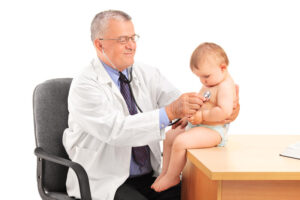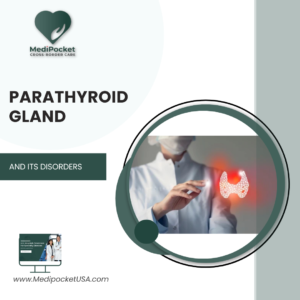In a recent announcement that shook the world, Kate Middleton, the Princess of Wales, revealed her battle with cancer. This revelation came following a period of recovery from major surgery, initially believed to be for a noncancerous condition. The news underscores the importance of cancer screening, especially among individuals aged 18-49, who often overlook the significance of early detection.
Kate Middleton’s Diagnosis:

In January, Kate Middleton had “major abdominal surgery” to treat a disease that was first thought to be non cancerous. Although the procedure went well, examinations later revealed the presence of malignancy. It’s unclear if an early diagnosis of the malignancy was made. She is currently undergoing the initial phases of preventive chemotherapy at the recommendation of her medical team.
“This, of course, came as a huge shock, and William and I have been doing everything we can to process and manage this privately for the sake of our young family,” said Catherine, who is married to William, the Prince of Wales and the heir to the British crown.
The sudden news regarding the princess of wales, Kate, might shock everyone but people are overlooking the main and crucial fact here. Underestimating the Cancer diagnosis at certain age.
The Effect on Younger Adults:
People in the 18 to 49 age range frequently underestimate their risk of cancer and may skip regular screening exams. But Kate’s story shows that cancer may strike anyone at any age. As demonstrated by Kate Middleton’s experience, screening standards violations might result in delayed diagnoses and worse prognosis.
The Significance of Cancer Screening:

Regular cancer screening is essential for identifying anomalies before the development of symptoms. Early detection is made possible by tests including mammography, Pap smears, colonoscopies, and genetic screenings. This allows for prompt intervention and better results. People can take proactive measures to protect their health and identify cancer at its earliest.
- Early detection saves lives: In its early stages, cancer frequently progresses silently without exhibiting signs. Screening tests are intended to find anomalies or indications of cancer before symptoms appear, allowing for prompt diagnosis and treatment. Early identification lowers the need for aggressive medications, improves survival rates, and enhances the likelihood of a successful course of therapy.
- Improved therapy Options: Patients have access to a greater array of therapy options when cancer is detected early. Surgery, radiation therapy, and targeted medicines are often more effective in treating early-stage malignancies. Screening helps develop less intrusive and more successful treatment techniques by identifying cancer before it reaches an advanced stage, which improves patient outcomes.
- Prevention and Risk Reduction: Certain screening tests uncover risk factors or precancerous diseases that put a person at risk of developing cancer in addition to detecting cancer. Healthcare professionals can lower the chance of cancer development by implementing preventative measures including lifestyle changes, surveillance, or preventive drugs by early detection of these precursors. Additionally, screening gives people the confidence to take preventative measures to preserve their health and lower their risk of cancer.
- Greater Survival Rates: Research has repeatedly shown that communities having regular access to cancer screening have greater survival rates than populations not having screening. Screening programs make it easier to identify cancer in its localized or regional stages, when it is more controllable and treatment is most successful. As a result, those who regularly get screened have a higher chance of surviving cancer and having better long-term results.
- Impact on Public Health: Cancer screening initiatives significantly lower population-level cancer-related death and morbidity. Screening programs assist in reducing the toll that cancer has on families, communities, and healthcare systems by detecting the disease early and taking action.
Advances in Cancer Screening in the United States:
Thanks to technological and medical advances, the United States has a strong infrastructure for cancer screening. Novel screening techniques, like molecular profiling and liquid biopsies, provide increased sensitivity and precision in the identification of cancer biomarkers. Furthermore, programs like MediPocket USA have made cancer screenings and other preventative care more accessible, guaranteeing that at-risk groups have greater coverage.
Why are they the best in the world?
- State-of-the-Art Screening Technologies: The United States benefits from access to state-of-the-art screening technologies that enable early detection and diagnosis of various types of cancer. Advanced imaging techniques such as mammography, computed tomography (CT) scans, magnetic resonance imaging (MRI), and positron emission tomography (PET) scans are widely available across healthcare facilities, facilitating the detection of abnormalities and suspicious lesions.
- Genomic and Molecular Profiling: The integration of genomic and molecular profiling techniques has revolutionized cancer screening and diagnosis. Molecular tests, such as liquid biopsies and next-generation sequencing, allow for the detection of genetic mutations, biomarkers, and circulating tumor cells in blood samples. These advancements enhance the sensitivity and specificity of cancer screening, enabling personalized approaches to early detection and treatment selection.
- Comprehensive Screening Guidelines: The United States boasts comprehensive screening guidelines established by reputable organizations such as the American Cancer Society (ACS), the U.S. Preventive Services Task Force (USPSTF), and the National Comprehensive Cancer Network (NCCN). These guidelines provide evidence-based recommendations for cancer screening modalities, frequency, and target populations, ensuring consistent and effective screening practices nationwide.
- Access to Preventive Services: The Affordable Care Act (ACA) has played a pivotal role in expanding access to preventive services, including cancer screening, for millions of Americans. Under the ACA, many health insurance plans are required to cover recommended screening tests without cost-sharing, making preventive care more accessible and affordable for individuals across diverse socioeconomic backgrounds.
- Research and Innovation: The United States remains at the forefront of cancer research and innovation, driving advancements in screening technologies, biomarker discovery, and predictive modeling. Academic institutions, research centers, and government agencies collaborate to develop novel screening methods, validate diagnostic tools, and conduct clinical trials to evaluate the efficacy of emerging screening strategies.
- Multidisciplinary Approach to Care: Cancer screening in the United States is supported by a multidisciplinary approach to care, involving collaboration among healthcare professionals, including primary care physicians, oncologists, radiologists, pathologists, and genetic counselors. This interdisciplinary approach ensures comprehensive patient evaluation, accurate diagnosis, and appropriate management of detected abnormalities.
MediPocket USA is revolutionizing cancer care by bridging the geographical gap between cancer experts in the USA and patients worldwide. Through its innovative platform, MediPocket facilitates seamless connections between leading oncologists, researchers, and healthcare professionals in the United States with patients seeking expert guidance and treatment options from abroad. By leveraging advanced telemedicine technologies and digital communication tools, patients can access consultations, second opinions, and personalized treatment recommendations from renowned cancer specialists without the need for travel.
This not only reduces the barriers to accessing world-class cancer care but also empowers patients to make informed decisions about their treatment journey. Additionally, MediPocket’s platform fosters collaboration and knowledge exchange among healthcare providers, facilitating interdisciplinary approaches to cancer management and driving advancements in oncology research.
With MediPocket USA’s visionary approach to healthcare delivery, patients worldwide can benefit from the expertise and insights of top-tier cancer experts, regardless of their geographic location, ultimately improving outcomes and enhancing the quality of care for individuals battling cancer.
The story of Kate is a testament for us, to prioritze our health and make use of the resources that are available for us in terms of Healthcare.






